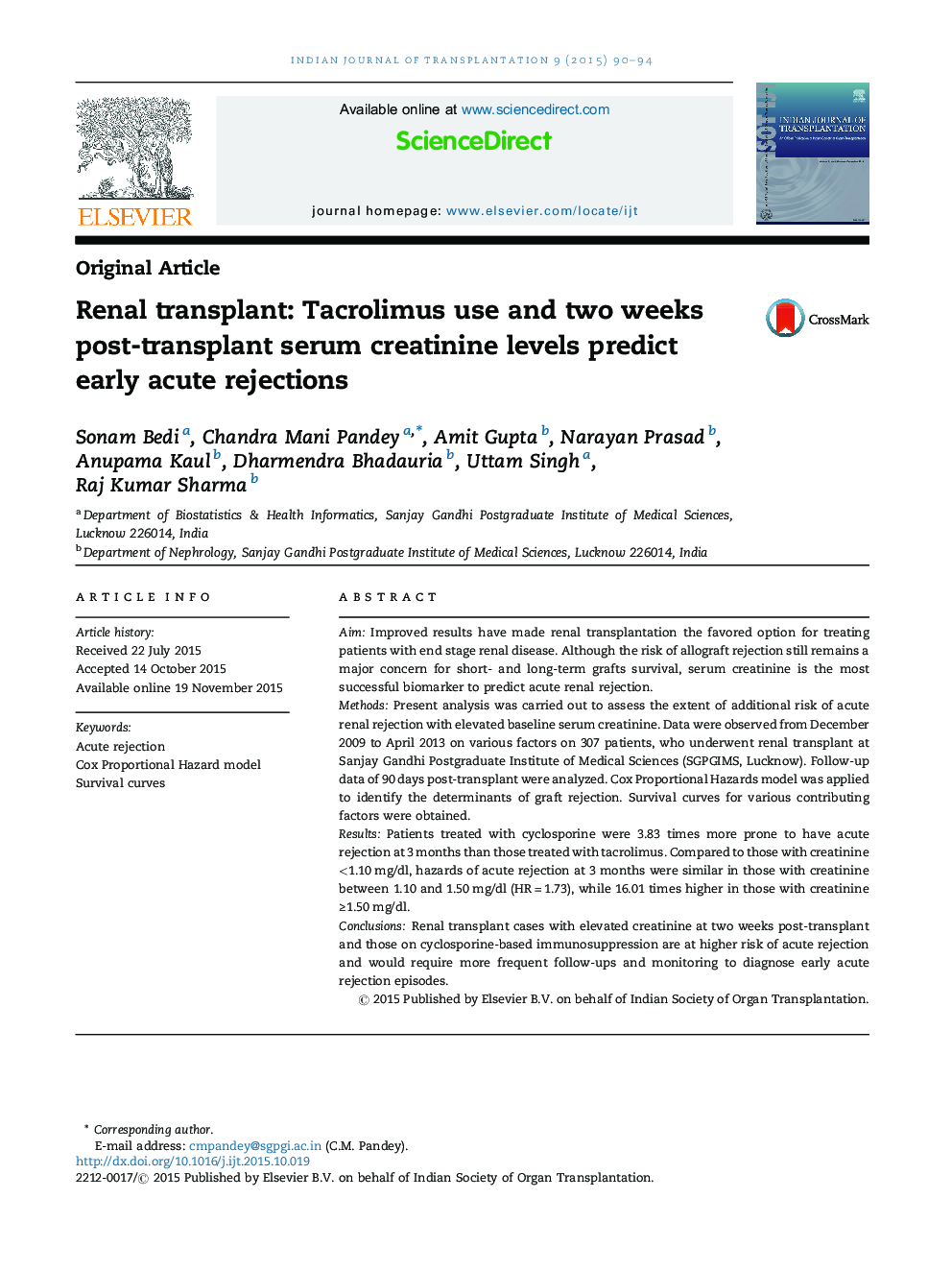| Article ID | Journal | Published Year | Pages | File Type |
|---|---|---|---|---|
| 3338162 | Indian Journal of Transplantation | 2015 | 5 Pages |
AimImproved results have made renal transplantation the favored option for treating patients with end stage renal disease. Although the risk of allograft rejection still remains a major concern for short- and long-term grafts survival, serum creatinine is the most successful biomarker to predict acute renal rejection.MethodsPresent analysis was carried out to assess the extent of additional risk of acute renal rejection with elevated baseline serum creatinine. Data were observed from December 2009 to April 2013 on various factors on 307 patients, who underwent renal transplant at Sanjay Gandhi Postgraduate Institute of Medical Sciences (SGPGIMS, Lucknow). Follow-up data of 90 days post-transplant were analyzed. Cox Proportional Hazards model was applied to identify the determinants of graft rejection. Survival curves for various contributing factors were obtained.ResultsPatients treated with cyclosporine were 3.83 times more prone to have acute rejection at 3 months than those treated with tacrolimus. Compared to those with creatinine <1.10 mg/dl, hazards of acute rejection at 3 months were similar in those with creatinine between 1.10 and 1.50 mg/dl (HR = 1.73), while 16.01 times higher in those with creatinine ≥1.50 mg/dl.ConclusionsRenal transplant cases with elevated creatinine at two weeks post-transplant and those on cyclosporine-based immunosuppression are at higher risk of acute rejection and would require more frequent follow-ups and monitoring to diagnose early acute rejection episodes.
